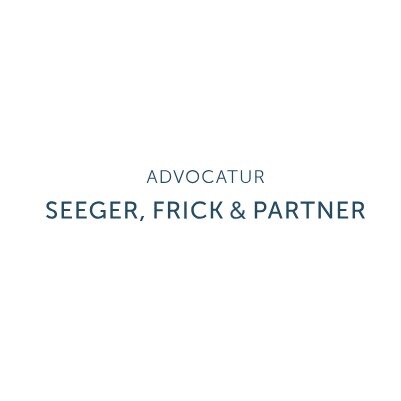Best Franchising Lawyers in Schaan
Share your needs with us, get contacted by law firms.
Free. Takes 2 min.
List of the best lawyers in Schaan, Liechtenstein
About Franchising Law in Schaan, Liechtenstein
Franchising in Schaan, Liechtenstein, operates under a comprehensive legal framework aimed at fostering a healthy business environment. This framework not only encourages local entrepreneurs to expand their businesses via franchising but also attracts internationally recognized franchises. The local laws ensure that both franchisors and franchisees enter into well-regulated agreements that protect their interests and promote fairness.
Why You May Need a Lawyer
Engaging in franchising involves numerous legal issues that might necessitate professional legal advice. Here are some common scenarios where you might need a lawyer:
- Drafting or reviewing franchise agreements
- Understanding compliance with local laws and regulations
- Resolving disputes between franchisors and franchisees
- Trademark registration and intellectual property issues
- Negotiating lease agreements for franchise locations
- Ensuring that marketing and operational practices are legally sound
- Assistance with franchise renewal or termination processes
- Financial and tax advice related to franchise operations
Local Laws Overview
Franchising in Schaan, Liechtenstein, is primarily governed by contract law, competition law, and intellectual property law. Key aspects include:
- Contract Law: The franchise agreement is a critical document that outlines the terms and conditions of the franchise relationship. It should be clear and comply with the local legal standards.
- Competition Law: Laws to prevent anti-competitive practices and promote fair competition are in place. Both franchisors and franchisees need to ensure that their practices do not violate these laws.
- Intellectual Property Law: Protecting trademarks, patents, and copyrights is essential. Proper registration and licensing are crucial for franchise operations.
- Disclosure Requirements: Franchisors must provide prospective franchisees with sufficient information to make informed decisions.
- Employment Law: Franchisees must comply with local employment laws, including worker rights and benefits.
Frequently Asked Questions
1. What is a franchise agreement?
A franchise agreement is a legally binding document between a franchisor and a franchisee. It outlines the rights and responsibilities of both parties, including fees, trademark use, operational guidelines, and more.
2. Is franchising regulated in Schaan, Liechtenstein?
Yes, franchising in Schaan, Liechtenstein, is regulated primarily under contract law, competition law, and intellectual property law. Compliance with these regulations is mandatory for both franchisors and franchisees.
3. What should I look for in a franchise agreement?
You should pay attention to the fees, duration, renewal terms, obligations for both parties, territorial rights, intellectual property rights, training and support, and exit clauses.
4. Do I need a lawyer to start a franchise business?
While not mandatory, having a lawyer is highly recommended to ensure all legal aspects are properly covered, including the franchise agreement, compliance, and dispute resolution.
5. How can I protect my intellectual property in a franchise?
Registering trademarks, patents, and copyrights and including proper clauses in the franchise agreement can help protect your intellectual property rights.
6. What are the common fees in a franchise agreement?
Common fees include initial franchise fees, ongoing royalties, marketing fees, and renewal fees. These should be clearly specified in the franchise agreement.
7. Can I terminate a franchise agreement early?
Termination conditions should be outlined in the franchise agreement. Early termination is usually possible under specific circumstances such as breach of contract by either party.
8. What disclosure is required from the franchisor?
Franchisors are required to provide prospective franchisees with comprehensive disclosures about the franchise, including financial performance, fees, and legal obligations.
9. How is dispute resolution handled in franchising?
Dispute resolution mechanisms, such as arbitration or mediation, should be specified in the franchise agreement. Legal procedures may also be followed for severe disputes.
10. Are there any tax implications for franchising?
Yes, there are tax implications for both franchisors and franchisees. Consulting with a tax professional can provide a clearer understanding of the local tax laws and obligations.
Additional Resources
Here are some resources that can be valuable for anyone seeking legal advice on franchising in Schaan, Liechtenstein:
- Liechtenstein Chamber of Commerce and Industry
- Office of Economic Affairs (Amt für Volkswirtschaft)
- Local business consultants specializing in franchising
- Liechtenstein Bar Association for finding reputable lawyers
- Business development agencies
Next Steps
If you need legal assistance in franchising, consider the following steps:
- Identify your specific legal needs and issues related to franchising.
- Contact a lawyer specialized in franchising and business law in Schaan, Liechtenstein.
- Prepare all necessary documents and information for your initial consultation.
- Discuss your options and ensure you understand all legal implications before proceeding.
- Follow through with legal advice and maintain open communication with your lawyer.
Lawzana helps you find the best lawyers and law firms in Schaan through a curated and pre-screened list of qualified legal professionals. Our platform offers rankings and detailed profiles of attorneys and law firms, allowing you to compare based on practice areas, including Franchising, experience, and client feedback.
Each profile includes a description of the firm's areas of practice, client reviews, team members and partners, year of establishment, spoken languages, office locations, contact information, social media presence, and any published articles or resources. Most firms on our platform speak English and are experienced in both local and international legal matters.
Get a quote from top-rated law firms in Schaan, Liechtenstein — quickly, securely, and without unnecessary hassle.
Disclaimer:
The information provided on this page is for general informational purposes only and does not constitute legal advice. While we strive to ensure the accuracy and relevance of the content, legal information may change over time, and interpretations of the law can vary. You should always consult with a qualified legal professional for advice specific to your situation.
We disclaim all liability for actions taken or not taken based on the content of this page. If you believe any information is incorrect or outdated, please contact us, and we will review and update it where appropriate.










